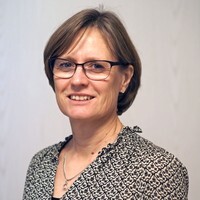KTH Royal Institute of Technology
Electrochemical characterization of novel materials for electrolyzers
Industrial project
Postdoc
Open
Research question
Hydrogen has been identified as a critical energy vector in the energy transition from a fossil fuel-based to a renewable energy-based economy. Today, hydrogen is overwhelmingly produced via steam reforming of hydrocarbons, a process which incurs a large penalty of carbon dioxide emissions. Alternatively, hydrogen can be produced via electrochemical water splitting using electricity from renewable sources. The technology of polymer electrolyte membrane electrolysis has matured to the point where green hydrogen can be produced efficiently on an industrial scale. However, in order to supply hydrogen in a magnitude of the demands projected by the energy transition, a significant reduction of cost for electrolysis systems is a prerequisite to enable the build-up of necessary infrastructure for green hydrogen production.
A major cost factor in electrolysis stacks is the utilization of materials resistant to the highly corrosive environments. Platinum-coated titanium bipolar plates and porous transport layers are prime examples of highly corrosion resistant components which drive total stack costs prohibitively high. Recent scientific advances have been able to show that a highly corrosive environment is limited to a relatively small portion of the stack, which permits the replacement of costly corrosion-resistant materials with cheaper, more flexible materials to a large extent.
This project will focus on characterizing such novel materials in lab-scale electrolysis cells using standardized test bench protocols to evaluate the suitability and cost reduction potential of said materials in industrial applications.
Sustainability aspects
The materials under consideration and their application in hydrogen production technologies make them very valuable for many of the sustainable development goals (SDGs):
-SDG 1 (no poverty), i.e., affordable materials to be produced and recycled, enabling economic advancement:
-SDG 2 (zero hunger), i.e., materials for safe and increased productivity of food, at the same time reducing food waste:
-SDG 7 (affordable and clean energy), i.e., green materials for efficient technology and infrastructure to harvest, transport, store, and convert energy:
-SDG 8 (decent work and economic growth), i.e., resource efficient use of materials for processes enabling an increased value of raw materials.
-SDG 12 (responsible consumption and production), i.e., efficient (re)use of (natural materials) for sustainable production/consumption with lower chem release in soil, air, and water:

KTH Royal Institute of Technology
Carina Lagergren
Professor
carinal@kth.se
Alleima EMEA AB
Jörgen Westlinder
Industrial PI
jorgen.westlinder@alleima.com
Explore projects under the WISE program
WISE drives the development of future materials science at the international forefront. The research should lead to the development of sustainable and efficient materials to solve some of today's major challenges, primary sustainability. On this page you can read more about our research projects.
Explore projects